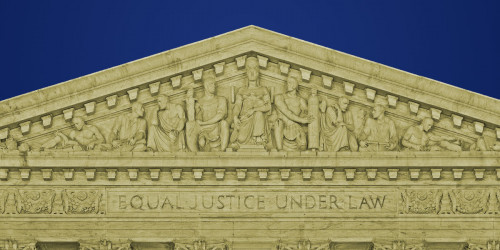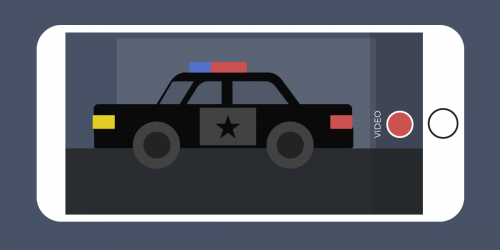Earlier this month, the Senate passed the TAKE IT DOWN Act (S. 146), by a voice vote. The bill is meant to speed up the removal of non-consensual intimate imagery, or NCII, including videos that imitate real people, a technology sometimes called “deepfakes.”
Protecting victims of these heinous privacy invasions is a legitimate goal. But good intentions alone are not enough to make good policy. As currently drafted, the TAKE IT DOWN Act mandates a notice-and-takedown system that threatens free expression, user privacy, and due process, without addressing the problem it claims to solve.
This misguided bill can still be stopped in the House of Representatives. Help us speak out against it now.
"Take It Down" Has No real Safeguards
Before this vote, EFF, along with the Center for Democracy & Technology (CDT), Authors Guild, Demand Progress Action, Fight for the Future, Freedom of the Press Foundation, New America’s Open Technology Institute, Public Knowledge, Restore The Fourth, SIECUS: Sex Ed for Social Change, TechFreedom, and Woodhull Freedom Foundation, sent a letter to the Senate, asking them to change this legislation to protect legitimate speech that is not NCII. Changes are also needed to protect users who rely on encrypted services.
The letter explains that the bill’s “takedown” provision applies to a much broader category of content—potentially any images involving intimate or sexual content at all—than the narrower NCII definitions found elsewhere in the bill. The bill contains no protections against frivolous or bad-faith takedown requests. Lawful content—including satire, journalism, and political speech—could be wrongly censored. The legislation requires that apps and websites remove content within 48 hours, meaning that online service providers, particularly smaller ones, will have to comply so quickly to avoid legal risk that they won’t be able to verify claims
This would likely lead to the use of often-inaccurate automated filters that are infamous for flagging legal content, from fair-use commentary to news reporting. Communications providers that offer users end-to-end encrypted messaging, meanwhile, may be served with notices they simply cannot comply with, given the fact that these providers cannot view the contents of messages on their platforms. Platforms may respond by abandoning encryption entirely in order to be able to monitor content—turning private conversations into surveilled spaces.
Congress should focus on enforcing and improving the many existing civil and criminal laws that address NCII, rather than opting for a broad takedown regime that is bound to be abused. Tell your Member of Congress to oppose censorship and to oppose S. 146.
Tell the house to stop "Take it down"
Further reading:
- EFF and allies letter opposing S. 146, the TAKE IT DOWN Act.











